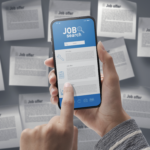New research reveals an over reliance on email for scheduling meetings and hand-written minutes, 59 percent admitting that minutes are still hand written manually during a meeting and then circulated once typed out.
The research, conducted by TLF Research for technology firm eShare, also revealed an overwhelming reliance on email for sharing agendas and other meeting information. Almost three-quarters of respondents said they receive a meeting agenda via email, while 70% say that they just reply to that email should they want to change the agenda in any way. “So many businesses talk about digital transformation, yet when it comes to meetings, a great number still rely on a technology that is at least 20 years old,” said Alister Esam, CEO, eShare. “We are all aware how annoying, intrusive and unproductive email can be, and this is even more so when there are lots of unnecessary emails about meeting agendas flying about. There are many smarter options for meetings that are more collaborative and efficient and it is strange that many board meetings are still so old-fashioned.”
Only two percent of executives surveyed said they used bespoke meeting management software for sharing meeting agendas and information. Seven percent were still using paper to share meeting agendas. Once documents had been shared for a meeting, 58 percent of respondents said it was down to the attendee to arrive at the meeting with the correct information. Four percent admitted they brought printed materials for attendees to meetings, while five percent could access materials via SharePoint, Office 365 or a shared folder.
“Sharing information ahead of a board meeting should be simple, and should allow the attendee to easily bring the correct information on a tablet or mobile device of their own choosing,” continued Alister Esam. “Many people use a tablet in business in 2016 and using them for this purpose makes it easier to annotate documents, share content and ensure that everyone has the right documents in front of them for the meeting.”
The research would suggest that board members are open to more innovative ways of approaching the meeting process. When asked about features they would like to help improve their participation and productivity around meetings, the top answers were:
- Something to reduce the email trail
- The ability to make online annotations to materials during the meeting
- Accessing all the relevant information when needed
- Easy information sharing
“Board members are busy enough without worrying about access to the right information or whether they can or cannot amend a document ahead of a meeting,” concluded Alister Esam. “Digital technology has impacted almost every other area of business and it’s high time that it was allowed to do so with meetings.”








